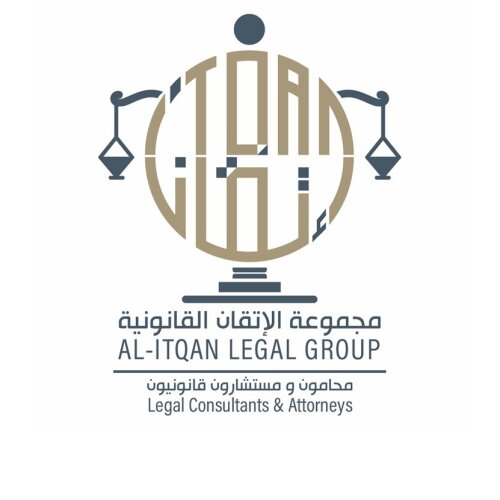Best E-commerce & Internet Law Lawyers in Kuwait
Share your needs with us, get contacted by law firms.
Free. Takes 2 min.
Or refine your search by selecting a city:
List of the best lawyers in Kuwait
About E-commerce & Internet Law in Kuwait
In recent years, Kuwait has witnessed substantial growth in the e-commerce sector, fueled by increasing internet penetration and consumer demand for online shopping. E-commerce & Internet Law in Kuwait is a developing legal field, designed to regulate online business activities, protect consumer rights and ensure digital transactions are secure. Key aspects include rules around online contracts, privacy protection, electronic payments, and advertising standards. As the industry continues to expand, so does the need for comprehensive legal frameworks to address the challenges and opportunities it presents.
Why You May Need a Lawyer
There are several situations where legal advice might be necessary for those engaged in e-commerce or digital activities within Kuwait:
- Drafting and reviewing terms and conditions for online businesses to ensure compliance with local laws.
- Handling disputes related to online transactions, such as chargebacks or breach of contract issues.
- Ensuring compliance with digital privacy regulations, particularly when collecting and processing customer data.
- Advising on intellectual property protection for online content, including trademarks and copyrights.
- Guidance on advertising laws, ensuring that online marketing practices comply with legal standards.
Local Laws Overview
Several local laws pertain to E-commerce & Internet Law in Kuwait:
- E-Transactions Law: This law provides the legal foundation for electronic contracts and digital signatures, offering guidelines on their recognition and enforceability.
- Consumer Protection Law: This ensures consumer rights are upheld in online businesses, protecting against fraud and requiring fair and transparent terms.
- Data Protection Regulations: Regulations are in place to safeguard user data and maintain privacy standards, crucial for businesses handling personal information.
- Advertising Regulations: These govern the legality and fairness of online advertising, including misleading claims or unauthorized endorsements.
Frequently Asked Questions
1. What is considered an electronic contract in Kuwait?
An electronic contract in Kuwait is a legally binding agreement created and signed digitally. The E-Transactions Law recognizes these contracts, provided they meet certain criteria for validity and enforceability.
2. Are digital signatures legally recognized?
Yes, digital signatures are legally recognized in Kuwait under the E-Transactions Law, provided they meet specific technical standards and security requirements.
3. How are consumer rights protected in e-commerce?
The Consumer Protection Law safeguards consumers by ensuring transparency, providing recourse against fraudulent activities, and mandating clear information on products and services offered online.
4. What data protection measures are e-commerce businesses required to implement?
Businesses must comply with data protection regulations that include securing customer information, obtaining explicit consent for data use, and providing options for data access or deletion upon request.
5. What are the penalties for violating e-commerce laws?
Penalties vary depending on the severity of the violation but can include fines, business license suspension, and potentially criminal charges for severe breaches like fraud or data misuse.
6. Do I need to register my online business in Kuwait?
Yes, online businesses must register with the relevant Kuwaiti authorities to operate legally, ensuring they comply with tax, consumer, and commercial regulations.
7. Can foreign businesses offer e-commerce services in Kuwait?
Foreign businesses can offer e-commerce services; however, they may need to partner with a local entity or establish a presence in Kuwait to adhere to local laws and regulations.
8. How can I protect my intellectual property online?
Protecting intellectual property online involves registering trademarks, copyrights, and other rights, as well as implementing terms of use that specify how content can be used by others.
9. What should be included in terms and conditions for an e-commerce site?
Terms and conditions should cover aspects such as return policies, user privacy, disclaimers, payment methods, and dispute resolution processes to protect both the business and consumers.
10. Are there specific laws for online advertising?
Yes, there are advertising regulations which require honesty, transparency, and verification of claims made in online advertisements to prevent misleading or deceptive promotions.
Additional Resources
For further guidance, individuals and businesses can consult the following resources:
- The Kuwait Ministry of Commerce and Industry for regulatory updates and licensing information.
- The Communication and Information Technology Regulatory Authority (CITRA) for data protection and cybersecurity standards.
- Consulting with local law firms that specialize in E-commerce and Internet law can provide personalized legal advice and support.
Next Steps
If you require legal assistance in the field of E-commerce & Internet Law in Kuwait, consider the following steps:
- Identify specific legal issues or questions you need assistance with to ensure you engage the right expert.
- Research and contact law firms or legal professionals with expertise in E-commerce & Internet Law in Kuwait.
- Prepare any relevant documentation and information regarding your e-commerce business or concern to facilitate a more productive consultation.
- Consider joining industry associations or groups that can provide access to networking opportunities and insights from other e-commerce professionals.
Lawzana helps you find the best lawyers and law firms in Kuwait through a curated and pre-screened list of qualified legal professionals. Our platform offers rankings and detailed profiles of attorneys and law firms, allowing you to compare based on practice areas, including E-commerce & Internet Law, experience, and client feedback.
Each profile includes a description of the firm's areas of practice, client reviews, team members and partners, year of establishment, spoken languages, office locations, contact information, social media presence, and any published articles or resources. Most firms on our platform speak English and are experienced in both local and international legal matters.
Get a quote from top-rated law firms in Kuwait — quickly, securely, and without unnecessary hassle.
Disclaimer:
The information provided on this page is for general informational purposes only and does not constitute legal advice. While we strive to ensure the accuracy and relevance of the content, legal information may change over time, and interpretations of the law can vary. You should always consult with a qualified legal professional for advice specific to your situation.
We disclaim all liability for actions taken or not taken based on the content of this page. If you believe any information is incorrect or outdated, please contact us, and we will review and update it where appropriate.
Browse e-commerce & internet law law firms by city in Kuwait
Refine your search by selecting a city.












